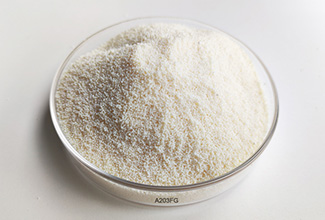What is boiler chemical treatment?
Chemical treatment: Boiler water should be treated with chemicals to prevent scale buildup, corrosion, and foaming. The type of chemicals used will depend on the specific characteristics of your boiler water.
Boilers use soft water mainly to prevent scale formation, improve heat transfer efficiency, reduce fuel consumption, and extend the service life of equipment. Softened water achieves this goal by removing hardness components such as calcium and magnesium ions in water.
Ion exchange resin is a key material for softening water treatment. It is a high molecular polymer with active groups that can exchange ions and can exchange ions with cations in water (such as Ca²⁺, Mg²⁺) to remove these hardness ions. Specifically, when raw water containing hardness ions passes through the resin layer, the sodium ions on the resin will be replaced with calcium and magnesium ions in the water. The resin adsorbs calcium and magnesium ions and sodium ions enter the water. In this way, the water flowing out of the exchanger is softened water with hardness ions removed.
The working principle of ion exchange resin includes the following steps: water supply, backwashing, salt absorption (regeneration), slow flushing (displacement) and fast flushing. In practical applications, the ion exchange resin system usually consists of multiple resin tanks, each of which contains different types of resins to meet different water quality treatment needs.
In addition, the selectivity of ion exchange resin is also very important. For example, strong acid cation exchange resin contains a large number of strong acid groups, which can easily dissociate H⁺ in the solution, thereby adsorbing other cations in the solution. This selectivity enables ion exchange resin to efficiently remove hardness ions in water.
The combination of soft water and ion exchange resin in boilers can not only effectively prevent the formation of scale, but also improve the heat transfer efficiency of boilers and the service life of equipment, and reduce operating costs.
What is Boiler Chemical Treatment?
Table of Contents
Last One :
Related Products
-
.jpg) Super Absorbent Polymer SAP for AgriculturalMain ngredient:Potassium PolyacrylatePhysical Property:Non-toxic,NonpollutingFunction:Drought control /Saving water /Soil conditioner
Super Absorbent Polymer SAP for AgriculturalMain ngredient:Potassium PolyacrylatePhysical Property:Non-toxic,NonpollutingFunction:Drought control /Saving water /Soil conditioner -
 A203FG Food Grade Macroporous Strong Base AnionAppearance: Milky white opaque spherical particleIonic form:Cl-Volume complete exchange capacity(mmol/ml):≥1.2
A203FG Food Grade Macroporous Strong Base AnionAppearance: Milky white opaque spherical particleIonic form:Cl-Volume complete exchange capacity(mmol/ml):≥1.2 -
.png) Cation Polyacrylamide ResinPurity : 99.9%Color : off-whiteQuality Control : Each Lot of Cationic Polyacrylamide was tested successfully
Cation Polyacrylamide ResinPurity : 99.9%Color : off-whiteQuality Control : Each Lot of Cationic Polyacrylamide was tested successfully
Message

